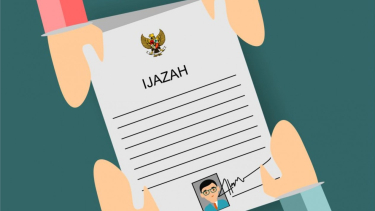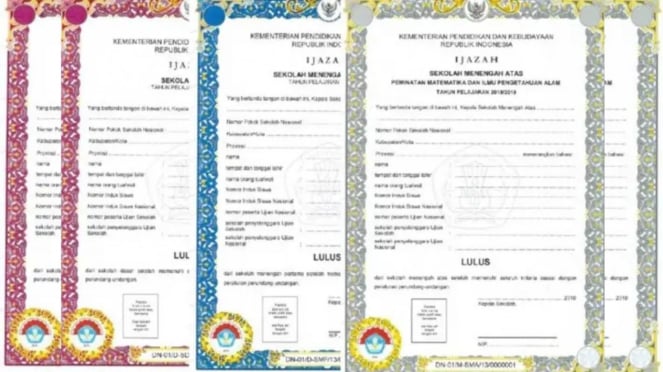Indonesia Embraces Digitalization with Electronic Diploma Initiative
- SMA Budi Utomo
Jakarta, VIVA – According to a statement from the Ministry of Primary and Secondary Education on Friday (Feb 7), the issuance of diplomas must adhere to three key principles: validity, accuracy, and legality, as outlined in Ministerial Regulation No. 58 of 2024 on Primary and Secondary Education Diplomas.
However, challenges remain in implementation each year as the diploma issuance system continues to be refined.
To address this, the ministry is pushing for digital transformation, including the introduction of electronic diplomas.
This initiative aims to ensure that administrative processes comply with regulations, allowing students to receive legally recognized diplomas that meet the latest standards.
Ilustrasi ijazah
- Istimewa
"The initiative currently being developed is the implementation of electronic diplomas, meaning the digitalization of diplomas to enhance efficiency, security, and accessibility for diploma recipients.
Through digitalization, we expect the issuance and distribution of graduation documents to become faster, more accurate, and less prone to forgery," said Winner Jihad Akbar, Director of Senior High Schools.
This initiative also grants schools greater autonomy in the diploma issuance process, aiming to improve efficiency and accuracy in their distribution.
However, it is important to note that only accredited educational institutions are authorized to issue diplomas. Institutions that have not yet received accreditation do not have this authority.
Additionally, Akbar emphasized the importance of diploma digitalization, reiterating that the implementation of electronic diplomas is expected to improve efficiency, security, and accessibility for diploma recipients.
Through digitalization, the diploma issuance and distribution process is expected to become faster, more accurate, and reduce the risk of forgery.
Meanwhile, Xarisman Wijaya Simanjuntak, a Legal and Regulatory Affairs Specialist, highlighted the significant regulatory changes brought by Ministerial Regulation No. 58 of 2024.
"Previously, Ministerial Regulation No. 14 of 2017 did not explicitly outline the general principles for diploma issuance. However, this new regulation establishes three key principles: validity, accuracy, and legality. These principles ensure that issued diplomas hold strong legal legitimacy while minimizing administrative errors," Simanjuntak added.
At the same event, L. Manik Mustikohendro, Coordinator of Educational Data at the Ministry’s Center for Data and Information, highlighted the importance of building a central diploma database as part of the national education data system.
"The diploma master database is a subset of the broader education database, requiring a clear strategy for management. A crucial aspect is establishing a well-structured and integrated governance mechanism for the diploma database to ensure the accuracy and validity of graduation documents," he remarked.
He further explained that this strategy aims to enhance administrative efficiency and minimize errors in diploma issuance.
With these regulations and initiatives, the diploma issuance process in Indonesia is expected to become more efficient, secure, and aligned with the latest government standards.



























